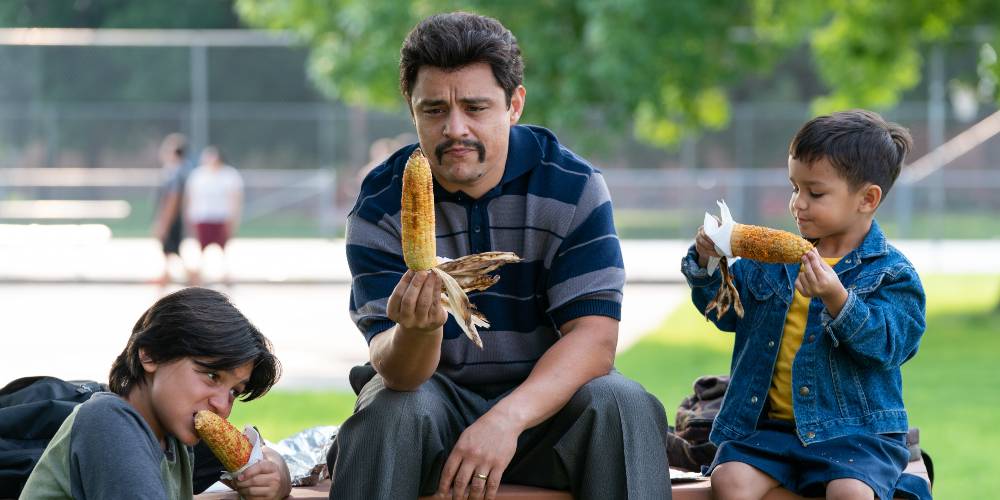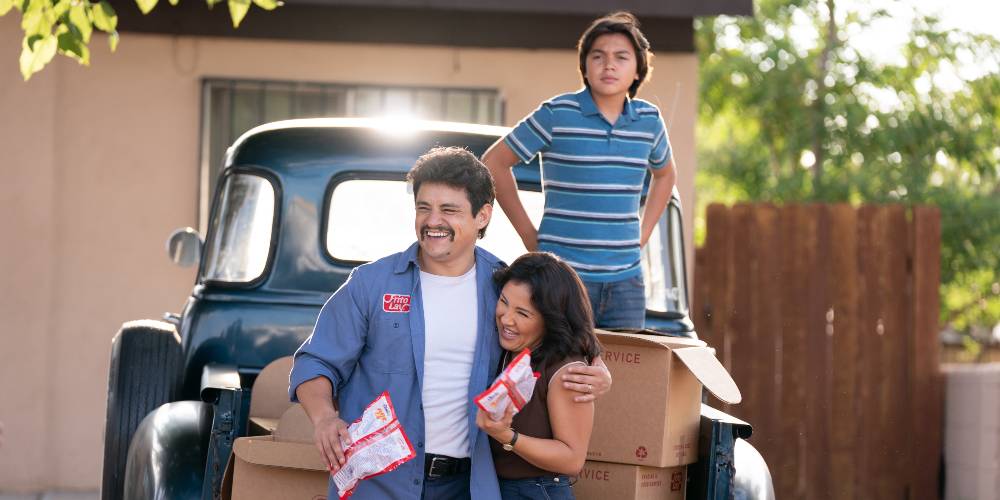Read also:
How to Watch FX Live Without CableHow To Watch AMC Without CableHow to Watch ABC Without CableHow to Watch Paramount Network Without CableEva Longoria’s directorial debut is solidly made but glosses over the interesting and thorny parts of its story in favor of a glossy ad for Cheetos.
Of all the oddball trends in 2023’s multiplex movies, the strangest has to be Hollywood’s current obsession with films about the origins of familiar consumer lines and products, including Air Jordans, Tetris, and the BlackBerry PDA. The films have been okay—and Air’s genuinely quite good—but even so, when all is said and done, it is hard to shake the sense that what you have been watching is less a movie than an elaborate brand extension designed to remind viewers of the benevolence and vision of our corporate overlords. That is especially true in the case of Eva Longoria’s directorial debut Flamin’ Hot, a film whose story is almost too good to be true (more on that later) but which is, in practice, an ironically bland bit of product placement even more processed and devoid of nourishment than the snack food it celebrates.
The film purports to tell the story of Richard Montanez (Jesse Garcia), who grew up in a migrant labor camp facing poverty and racism and eventually fell into a life of crime before deciding to step up and prioritize his responsibilities to his childhood sweetheart and wife Judy (Annie Gonzalez) and their forthcoming first child. To provide for them, Montanez takes a job on the janitorial staff of Frito-Lay’s struggling plant in Rancho Cucamonga. While he has the drive and ambition to go further up in the company, the rise he’s capable of is blocked by pervasive bigotry. Eight years later, Montanez is still sweeping the floors but now hoping to avoid being caught up in Frito-Lay’s seemingly endless layoffs.
The years have not dulled his ambitions, though. When he realizes that Frito-Lay’s chips lack the kinds of bold and spicy flavors favored by the ever-growing Hispanic audiences (leading to a joke about ranch-flavored Doritos that may be Flamin’ Hot’s funniest moment), he takes it upon himself to do something about it. Inspired by a corporate video featuring Frito-Lay head Roger Enrico (Tony Shalhoub) that stresses the importance of individual initiative, Montanez, with the aid of Judy and their two kids, sets out to develop a coating hot enough to stand out from the snack pack.

Once successful, Montanez audaciously contacts Enrico himself to offer his idea, much to the dismay of Frito-Lay’s assorted white-shirted (inevitably white) flunkies and yes-men who scoff at a mere janitor possibly creating any product, let alone one with the potential to revolutionize snack food. This all leads to the big moment where Richard pitches his product at a meeting where the entire fate of the Rancho Cucamonga plant hangs in the balance. If you’re leery of spoilers, I recommend avoiding grocery stores and mini-marts.
When a film along these lines comes out, it is often followed by a flurry of articles discussing how the events it depicts were changed, altered, or dropped in the name of dramatic license. In Flamin’ Hot’s case, the license is indeed dramatic. A 2021 Los Angeles Times article made a pretty convincing case that while Montanez did indeed make a spectacular rise through the company from the janitorial staff to being named head of Multicultural Marketing, he had virtually nothing to do with the creation of the Flamin’ Hot flavoring that would sell billions and adorn everything from chips to macaroni and cheese to soft drinks.

Considering that the veracity of Montanez’s story was called into question before Flamin’ Hot’s production, Longoria and co-writers Linda Yvette Chavez and Lewis Colick could have made the ambiguity of his story (Per the Times, Montanez was involved in expanding the Flamin’ Hot flavor beyond Cheetos) a key part of their narrative. They do not. A couple of points that seem to hint in this direction—a number of fantasy bits presumably meant to illustrate Montanez’s fabulist tendencies and a throwaway line of dialogue suggests that another group in the company is coming up with a similar coating. But Longoria and the writers have clearly elected to print the legend instead of the actual story.
My problem with Flamin’ Hot is not that it strays from the historical record, but that it does so in such an innocuous manner. While some of the stuff involving Montanez’s early days is interesting (particularly the way it invokes food as a way of bridging cultures), and Garcia gives a cheerfully gregarious performance, the film essentially loses whatever edge it might have had once he signs on with Frito-Lay—you can practically feel the strain of all involved trying to appease the corporation—and the screenplay becomes little more than a string of motivational speeches. As a director, Longoria does promising work; she shows a decent flair for the comedic material and handles the cast well. But the film is less confident during its more dramatic moments.
Ultimately, Flamin’ Hot isn’t so much bad as it is innocuous. It too often feels more interested in celebrating a major corporation than in the person who succeeded despite the obstacles inherent in such organizations for anyone who isn’t a white male. If you’re interested only in seeing a feel-good narrative that can be consumed quickly and without hesitation, it more or less gets the job done. If you are looking for something with even a skosh more substance, you may find Flamin’ Hot hard to swallow.
Flamin’ Hot premieres on Hulu and Disney Plus on June 9th, 2023.